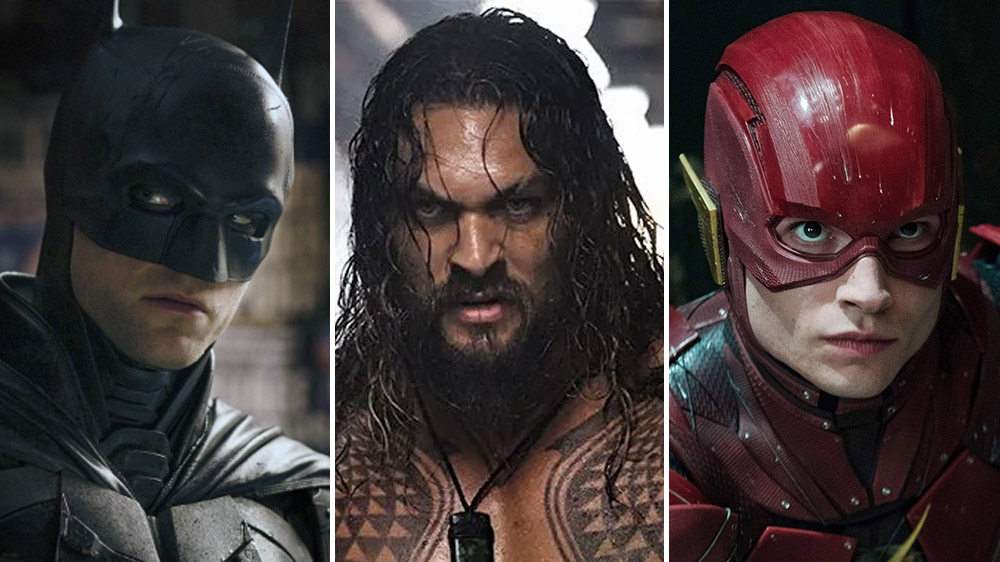On its face, finding “the next Kevin Feige” to oversee Warner Bros. Discovery’s film and TV adaptations of DC Comics is a bit like declaring you only want to make hits. If only wishing could make it so!
Feige’s reign as the chief creative officer of Marvel Studios — overseeing the singular Marvel Cinematic Universe for film since 2006 and for streaming TV since 2018 — has earned Disney upwards of $25 billion in global box office grosses to date and helped drive Disney+ to more than 152 million subscribers worldwide. Of course, WBD CEO David Zaslav wants to emulate that success.
Dan Lin, the producer of “The Lego Batman” has emerged as one possible DC chief, as has Emma Watts, a veteran executive with stints at Paramount and 20th Century Fox. Both are well-respected with deep connections throughout Hollywood.
But Feige charted a singular path to becoming the most successful creative executive in Hollywood that afforded him the time, patience and great good fortune to build the MCU more or less from the ground up and on his terms. Whoever takes the equivalent of the Feige job at DC will, by contrast, inherit a “Justice League”-sized series of preconditions, entrenched systems and PR migraines on top of the stupendous task of building a slate of film and TV titles that could equal the MCU. Here are a few of the challenges ahead.
Dealing with the fallout from the “Batgirl” cancellation
Cancelling “Batgirl” may have made sense from a dollars and cents perspective. Zaslav is committed to making streaming movies, for a price, and “Batgirl” with its $90 million budget was thought too expensive to fit nicely into that mold. The film also, sources say, wasn’t in good enough shape to justify the $50 million needed to market and release it in theaters. So, now Zaslav gets a tax write-off. Successful comic book universes, however, aren’t run by accountants. You need great filmmakers, visionary writers and talented stars. That’s a group that may not be feeling so hot about all things Warner Bros. Discovery. To thrive, the next DC chief will need to restore relationships with talent who fear that their next project could go the way of “Batgirl” and get rudely jettisoned.
Newly minted Warner Bros. Pictures chiefs Michael De Luca and Pamela Abdy have been working to ameliorate the situation, possibly by finding a new project for “Batgirl” star Leslie Grace and the film’s directors Bilall Fallah and Adil El Arbi. However, trust with the wider talent community has been broken. Repairing it will take a lot longer than breaking it did.
Managing ongoing — and unconnected — film and TV projects
OK, deep breath.
The only DC movie that currently has a greenlight post-merger is “Joker: Folie à Deux,” Todd Phillips’ follow-up to his $1 billion-grossing, Oscar-winning sensation, starring Joaquin Phoenix and Lady Gaga. Matt Reeves, meanwhile, is currently working on a sequel to his 2022 blockbuster “The Batman” with Robert Pattinson (Which hasn’t officially been greenlit yet, but who are we kidding? It could be a slice-of-life drama about Bruce Wayne’s trip to the Gotham Home Goods and it would likely get made) as well as a spin-off TV series centering on Colin Farrell’s the Penguin and written by Lauren LeFranc. Reeves is also developing another spin-off set in the world of “Arkham Asylum,” but that is further off. Then there’s the second season of “Peacemaker” from writer-director James Gunn, which Gunn says is still moving forward. The future of the animated series “Harley Quinn” and live-action shows “Titans” and “Doom Patrol” — all premiering new seasons this year on HBO Max — are less clear, as is what’s to become of “Constantine” and “Madame Xanadu” shows currently in development at J.J. Abrams’ Bad Robot.
Some of these titles interrelate, but — by design — none of them are part of a singular DC cinematic universe, especially “Joker 2” and “The Batman 2,” which each exist in their own, wholly separate narrative realms.
Zaslav, however, has made plain that he wants his own MCU for DC. Ironically, that was what the current head of DC’s film unit, Walter Hamada, was attempting to execute, by harnessing the expansive possibilities of the multiverse in a movie that was meant to hit the reset button for DC’s big screen storytelling.
That movie, alas, stars Ezra Miller.
Figuring out what to do with “The Flash”
In the Aug. 4 earnings call for WBD, Zaslav indicated that he still planned on moving forward with releasing “The Flash” into theaters, despite repeated, alarming headlines about allegedly abusive behavior by Miller (which, to be clear, started in April 2020, months before “The Flash” ever started shooting). Miller has since released an apology for “my past behavior,” and says that they are seeking “ongoing treatment” for “complex mental health issues.” While that statement temporarily calmed the tempest surrounding the star, it’s not certain that clear skies are on the horizon. At the very least, it means that Miller’s off-screen issues may mean he won’t be part of “The Flash” promotional rollout and that the rest of the cast and creative team will be left fielding difficult questions about the star instead of, you know, hawking the big, brassy, and escapist flick about the scarlet speedster.
And that’s an issue, because “The Flash,” which every exec who has seen it will tell you is really good, is intended to clean up all the narrative threads left dangling by the DCU’s stop-and-start approach to cinematic universe building. The film is using time travel and the multiverse to reset the DC timeline from what had been started with 2013’s “Man of Steel” and set it on a new course. If the film does come out, however, will that plan even hold, or will it be a kind of swan song before an even harder reset button is hit?
Which would have to wait anyway, because “The Flash” is no longer the last film of the old DC regime currently on the WB slate.
Figuring out what to do after “The Flash” (and “Aquaman and the Lost Kingdom”)
“The Flash” was intended to usher in a whole new era for the DCU, but now “Aquaman 2,” which was originally intended to pre-date that film, is coming after it. It’s possible that there could be some “Aquaman 2”-related concessions to cinematic timeline adjustments. But there may be some ongoing tweaking. Michael Keaton was originally supposed to show up as Batman at the end of “Aquaman 2,” following up on the character’s return in “The Flash.” But now that Ben Affleck is also slated to appear in the Atlantis-set adventure, that may be one former Batman too many.
However that is resolved, the new DC chief needs to find a new way to revive Superman. There are already several schools of thought there. One is to simply bring back Henry Cavill as the Man of Steel. Another would be to move forward with a J.J. Abrams-produced film that was supposed to have a script by Ta-Nehisi Coates and would have reportedly been the first to feature a Black Superman. Option three is to start from scratch or proceed with both the Abrams-Coates and Cavill versions of Supes at the same time.
Then there’s a desire to get a third Wonder Woman project going after the second one sputtered out with critics. Presumably that would involve having Gal Gadot once again wield the lasso of truth. That’s to say nothing of plans to get films featuring Green Lantern, Green Arrow, Martian Manhunter and a panoply of other Justice Leaguers going.
Navigating established fiefdoms at Warner Bros., HBO Max and WB TV
At Disney, Feige runs Marvel Studios as a fully separate unit from the rest of the company. By contrast, anything released under the Warner Bros. Pictures banner has traditionally gone through the office of the studio chief — which recently became occupied by De Luca and Abdy, taking over for Toby Emmerich. Ditto for HBO and HBO Max (headed by Casey Bloys) and Warner Bros. Television (run by Channing Dungey). That means that the new DC chief likely won’t have the kind of broad authority that Feige enjoys. Instead that person will have to be adept at navigating the egos and ambitions of other executives, whose interests may not always align. That could require a nearly superhuman ability.
Winning over the fans
Privately, studio insiders have lamented that “Zack Snyder’s Justice League” never should’ve happened. Rather than quiet the unceasing online campaigning to #ReleasetheSnyderCut, the four-hour HBO Max feature only further entrenched the vocal and extremely online “Snyderverse” fanbase in opposition to the leadership at the studio in general and at DC in particular.
That group may be hard to win over, but DC has to do a better job of cultivating the kind of compelling franchises that will enable them to build up the kind of passionate, engaged and excited fanbase that can drown out the haters. That takes patience, which has often been in short supply at DC where corporate overlords have long made it clear that they want their own in-house rival to the MCU, but have failed to understand the kind of blood, sweat and tears it can take to build that kind of juggernaut.
From Variety US



































